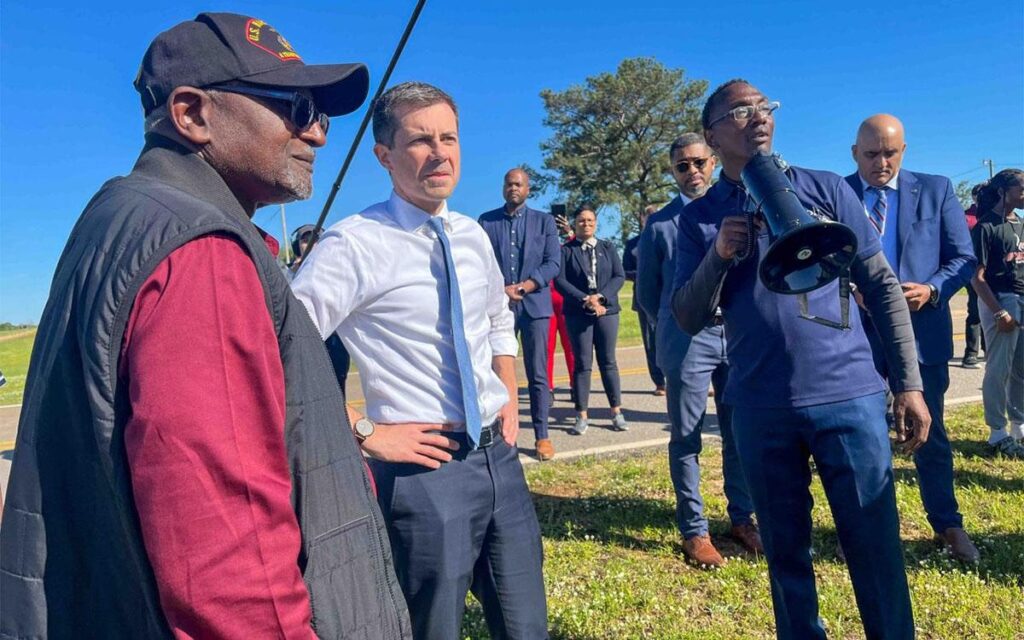The Environmental Injustice in Alabama is Glaring

Transportation Secretary Pete Buttigieg and Dr. Robert Bullard tour the Shiloh community in Alabama. | Photo by David Castillo/Bullard Center for Environmental and Climate Justice
The State of Alabama destroyed their homes. Your federal tax dollars helped pay for it.
In this week’s column, I want to check back in on the historic Black Shiloh community in Elba, Alabama.
Since 2018, when the Alabama Department of Transportation expanded a highway through the town, stormwater runoff has been flooding homes whenever it rains. This ongoing crisis has devastated members of this community, erasing their generational wealth. They need justice, and time for federal help is running out.
Pastor Timothy Williams, a Shiloh community leader, described his home sinking two feet into the mud, with his family’s future being washed away. “I see my inheritance and my children’s American dream being stolen,” he said in March.
The toll on this community is more than economic. Watching homes and communities be destroyed has severe physical, mental, and emotional impacts. Power lines and pipelines pose additional dangers. Pastor Williams fears his sinking house might rupture a nearby natural gas pipeline.
The clear racial factor in this issue is significant. Alabama’s highway project’s disregard for this rural Black community is all too familiar. Years of inaction and neglect by the state and federal government have followed. Acts of intimidation have targeted outspoken community members like Pastor Williams, whose restaurant faced a boycott from local white residents.
Some residents believe storm drainage pipes were aimed at their community intentionally.
Since first speaking with Pastor Williams, I have visited Shiloh and worked with Dr. Robert Bullard to pressure governments to act. Elba is Dr. Bullard’s hometown, highlighting the persistence of environmental racism. Dr. Bullard sits on the White House Environmental Justice Advisory Council.
Transportation Secretary Pete Buttigieg also visited recently. On October 4, the Federal Highway Administration announced a Voluntary Resolution Agreement (VRA) with the Alabama Department of Transportation to address flooding in Shiloh. This agreement resulted from a Civil Rights Act Title VI investigation, which prohibits racial discrimination in federally funded projects.
However, the VRA is not a solution for the damage already done. Homes are ruined, families traumatized, and property values decimated.
Army veteran Willie Horstead Jr., who also watched his home sink, summarized the sentiment: “I just want to be made whole.”
Dr. King’s words in his 1963 Letter From Birmingham Jail resonate: “Justice too long delayed is justice denied.”
Justice has been delayed for Shiloh residents. With the presidential election approaching, there’s uncertainty about future federal action. Further delay could mean justice is permanently denied to this community.
More stories about: environmental justice
Original Story at www.sierraclub.org
